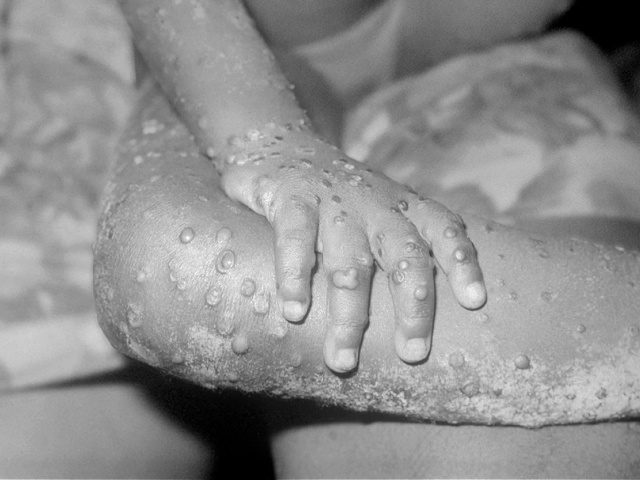The World Health Organization (W.H.O.) announced on Tuesday that it will officially rename the monkeypox to address concerns about the stigma and racism associated with the word.
Monkeypox has thus far infected over 1,600 people in more than two dozen countries, first breaking out in the United States this past May in Massachusetts and possibly having originated in Canada. W.H.O. director-general Tedros Adhanom Ghebreyesus announced on Tuesday that the organization will be “working with partners and experts from around the world on changing the name of monkeypox virus, its clades, and the disease it causes.”
No new name has yet been announced. Current W.H.O. guidelines omit viruses from being named after animals and geographic regions.
The name change comes after 30 scientists signed an open letter last week arguing for an “urgent need for a non-discriminatory and non-stigmatizing nomenclature for monkeypox virus.”
“In the context of the current global outbreak, continued reference to, and nomenclature of this virus being African is not only inaccurate but is also discriminatory and stigmatizing,” said the letter.
The Foreign Press Association, Africa, also previously asked Western media outlets to avoid using images of Africans when showing monkeypox.
“As any other disease, it can occur in any region in the world and afflict anyone, regardless of race or ethnicity,” the group said
“As such, we believe that no race or skin complexion should be the face of this disease,” the statement continued.
The group added that it was “disturbing” media outlets would instantly use images of black skin when showing monkeypox.
According to TIME, the organization will be consulting with experts in orthopoxviruses on more appropriate names.
According to ABC News, the monkeypox is a rare disease that was first detected among humans in the Democratic Republic of the Congo in 1970. Though it sometimes spreads to other nations, the disease is mostly located in central and western Africa. It often transmits from animals (primates or rodents) to humans through a bite or scratch. Per ABC News:
The disease can also spread from person to person via large respiratory droplets in the air, but they cannot travel more than a few feet, so two people would need to have prolonged close contact. The most common symptoms are fever, headache, fatigue and muscle aches. Very few cases of monkeypox have been identified among Americans.
According to the CDC, the disease does not naturally occur in the U.S. Infections are usually identified among people who recently traveled to countries where monkeypox is more commonly found. In 2003, 47 confirmed and probable cases were reported in six U.S. states, the first human cases reported outside of Africa.
The last two U.S. cases of the monkeypox occurred in July 2021 when a Texas resident returned from Nigeria and in November 2021 after a Maryland resident traveled to Nigeria.

COMMENTS
Please let us know if you're having issues with commenting.